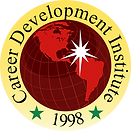DIVISION OF SOCIAL CARE
Early Childhood Education
About the programme
Learning Outcomes
- Develop an awareness of the role and importance of early childhood education.
- Familiarize students with the evolution of Early Childhood Education.
- Gain insight into the individual’s social, emotional, physical and cogitative development.
- Examine the different learning styles of children.
- Examine various effective disciplinary techniques used in training children in the Early Childhood range.
Content
- History of Early Childhood Education
- Theories Underpinning Early Childhood Education
- Theories of Child Development
- Important People in Early Childhood Education
- Assessing Children in Early Childhood Education
- Curriculum Development in Early Childhood Nutrition
Course Outline
1. Definition of the terms “Early Childhood”; “Early Childhood Education”; and “Child Development”.
2. Define factors which determine quality early childhood facilities.
1. Jean Piaget.
2. Maria Montessori.
3. Exploring the influence of early philosophers in local early childhood education programmes.
1. Development of the child from birth to 8 years old.
2. Personality patterns and behaviours.
3. Working with children in the early childhood range.
1. Definition of the term “Play”.
2. Exploring the benefits of play.
3. Outlining appropriate toys and games and games for young children.
4. Preparing the environment (indoor and outdoor).
5. The Learning Center.
1. Definition of the term “Nutrition”.
2. A balanced diet - a look at the Food Guide Pyramid.
3. Nutritional needs of young children.
4. The importance of good nutrition.
5. Problem – Eating Behaviours.
1. Common illnesses in young children.
2. Handling the sick child.
3. Handling accidents and emergencies.
4. Prevention and control measures.

Assessment
Assessment of the course is determined by course work which accounts for 40% of the overall grade. As well as the final written examination which accounts for 60%.
Instructional Approaches
This course will involve a mix of lectures and discussions and practical. To benefit fully, students’ participation in all aspects of the course is required. Students must:
- Attend all lectures
- Prepare for lectures
- Contribute to all discussions
Pre-requisites
Most of our courses do not require academic qualifications, except for Diploma and CVQ Level 3 programmes, which typically require three (3) CSEC passes, including English, or equivalent qualifications. Mature applicants without formal qualifications may be accepted based on relevant work experience.
Cost
- Registration: $50.00
- Regular Course Fee: $900.00
- Advanced Course Fee: $1200.00
Duration
- 6 Months
Call +1 (246) 431-0957 or WhatsApp +1 (246) 827-0657 for further information. Some aspects of this course outline are subject to change.
Related courses

Nursery Care
LEVEL 2 CVQ
- Duration: 12 - 18 Months
- Modules: 6
- Cost: $2200.00 BDS

Medical Office Assistant
CERTIFICATE COURSE
- Duration: 6 Months
- Modules: 11
- Cost: $1200.00 BDS

Nursing Auxiliary Studies
CERTIFICATE COURSE
- Duration: 12 - 18 Months
- Modules: 6
- Cost: $3200.00 BDS

Housekeeping
CERTIFICATE COURSE
- Duration: 6 Months
- Modules: 8
- Cost: $600.00 BDS
